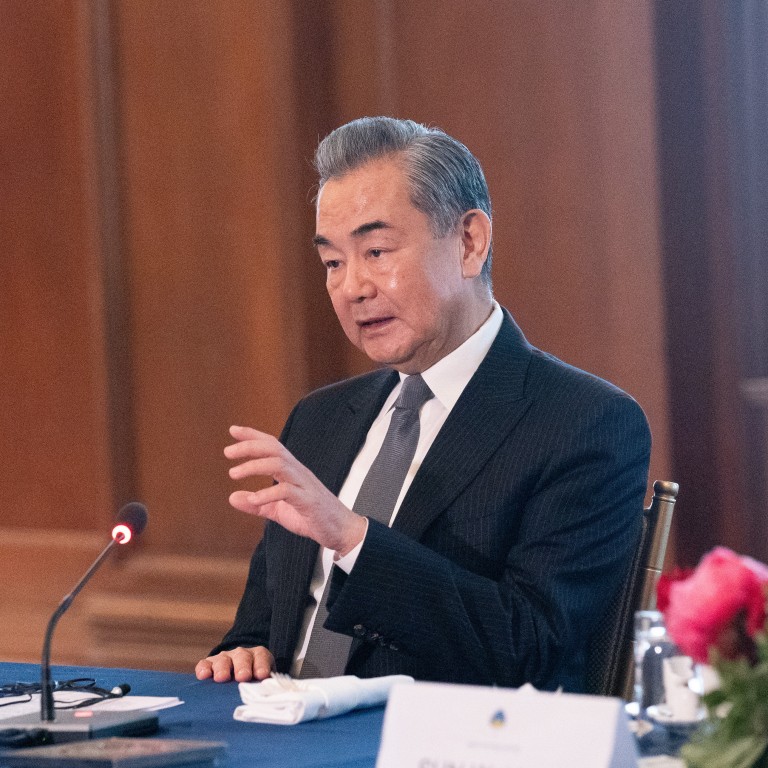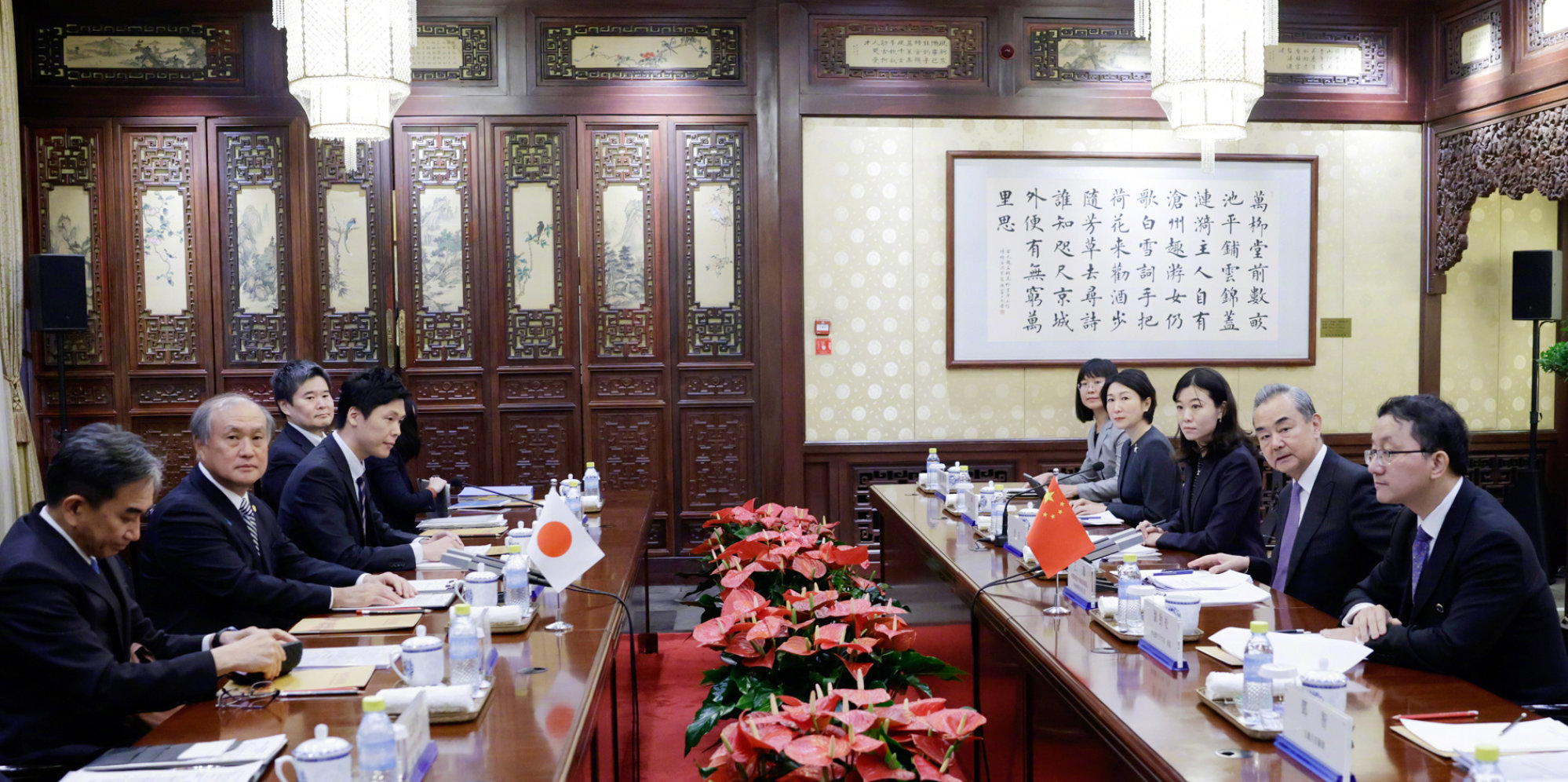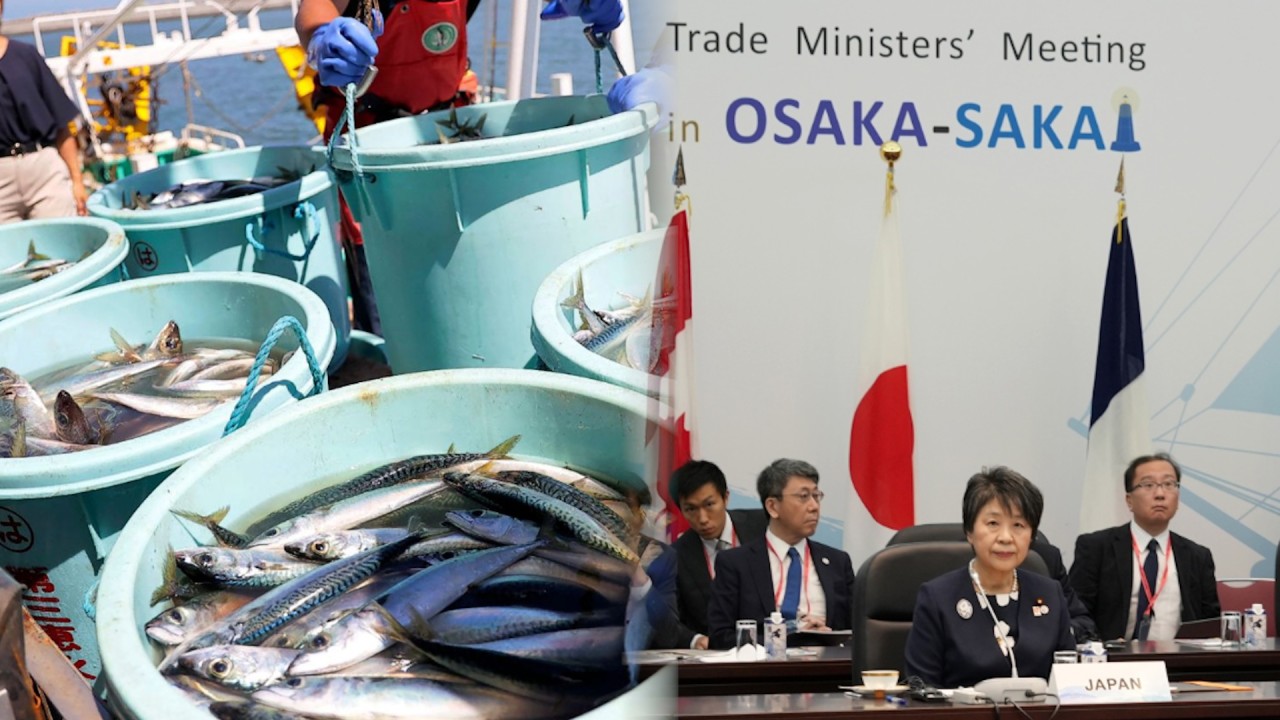
Chinese, Japanese diplomats meet ahead of possible Xi-Kishida meeting at Apec summit
- Chinese Foreign Minister Wang Yi meets Takeo Akiba, Japan’s top national security adviser, in Beijing
- Talks between Xi Jinping and Fumio Kishida during the summit in San Francisco are being arranged, according to reports
Foreign Minister Wang Yi and Takeo Akiba, special adviser to the Japanese cabinet and secretary general of Japan’s National Security Secretariat, discussed planning for high-level dialogue between their countries, according to China’s foreign ministry.
Wang Yi calls for nations to reject ‘bloc confrontation’ in swipe at US
Talks between Xi and Kishida were being arranged around next Thursday in San Francisco on the sidelines of the Asia-Pacific Economic Cooperation forum, an unnamed source was quoted by Kyodo as saying.

Akiba and Wang talked for 3½ hours on Thursday, with preparations for the summit, set for November 15-17, believed to be on the agenda. After the talks, Akiba told reporters that “nothing has been decided” about the leaders’ meeting, Kyodo reported.
During their meeting, Wang and Akiba agreed to “maintain communication and strive to bring bilateral relations back to the track of sound and stable development”, according to the foreign ministry.
Chinese foreign ministry spokesman Wang Wenbin said on Thursday that Beijing hoped Tokyo would “honour its statement about seeking constructive and stable relations with China” and “create the environment and atmosphere” needed for the two countries to engage in high-level exchanges.
Xi-Biden talks a ‘step closer’ after Wang Yi’s trip, but China still wary
“A Xi-Kishida summit would bode well for relations,” an international affairs analyst from the mainland said, speaking on condition of anonymity.
“China should take the opportunity to warm the ties, instead of pushing Japan further away, and avoid economic and technological isolation.”


